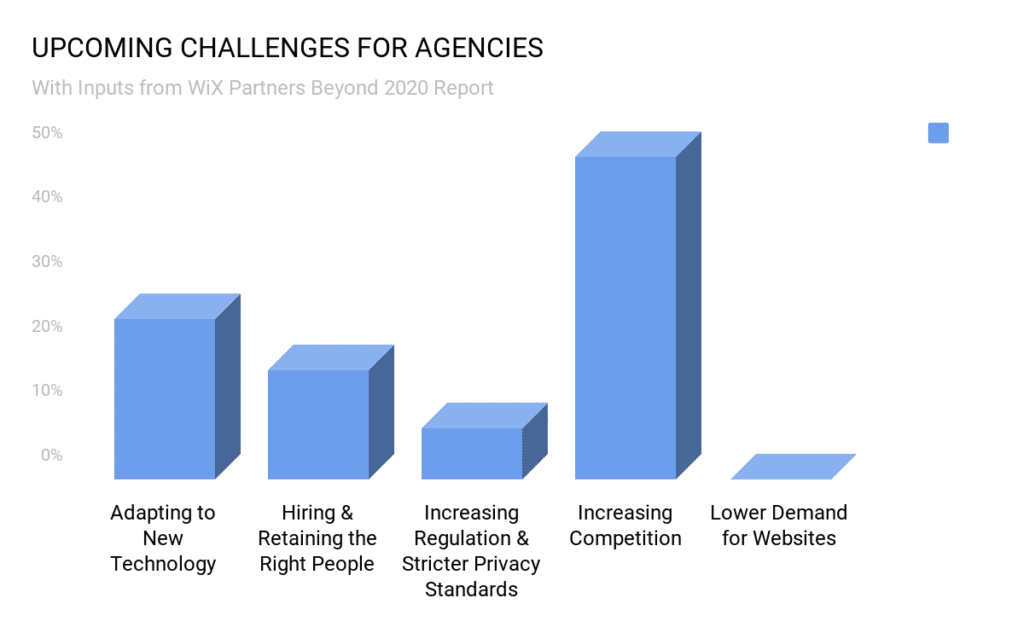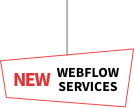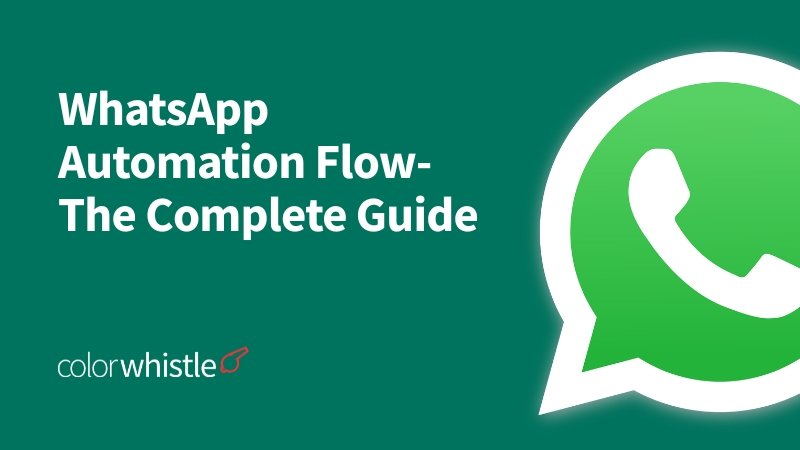“The world economy did not come down to a standstill on its own but was pushed into a slowdown by the health crisis. This means that there is an immediate scope for rise in demand…”
It is not as if the world has not faced economic recession in the recent past. The Dot com bubble crisis, 2008 financial crisis did show us a way around. However, drawing parallels from these events may not reflect well on the present situation.
Did the nature of work for Digital Services Agency really change post-COVID?
59%
“59% of people would like to keep working remotely as much as possible even after COVID-19 lockdowns were lifted…” – Gallup Survey
Yes, the nature of work is demanding a change – more remote team operations, agile planning, increased digital adoption among small businesses, more personalized marketing, including digital marketing services. With the coming of the pandemic, digital agencies must quickly adapt themselves to the changing business trends.
Upcoming Challenges for Agencies
As evident from the chart given below, lower demand for websites is no longer a challenge for digital agencies. That is to say, demand is consistent. However, most agencies feel the pinch with increasing competition in the digital marketing agency space. Other major challenges in the new normal include adapting to new technology (Marketing automation through Artificial Intelligence and Machine Learning), maintaining stricter privacy standards (General Data Protection Regulation in case of Europe) & talent management.

#1 Mitigating Increased Competition
“Digital agency services partnership with another agency works very well – Whitelabel, Profit Margin, Less Burn.”
Digital marketing became huge after the pandemic and now the long-term contracts, retainer services are certainly possible.
A retainer service is a mutual agreement between a business and an agency, most sought when the project deadline and cost is unclear. The agencies agree to receive a fixed regular payment until the completion of the project.
With this, businesses are benefitted through:
- Predictable costs
- Priority service by the agencies
- Decisions are “bus proof” (The bus factor is a measurement of the risk resulting from information and capabilities not being shared among team members)
Whereas, agencies can now provide:
- Better and focused services as agencies will no longer worry about seeking new business
- Better allocation of resources as the agencies will have an idea about future campaigns
Digital Agencies can play a more consulting role in the coming days.
With the rise in digital adoption for businesses, Agencies may now shift to a more consulting role rather than just implementing tools for businesses. It is possible through leveraging the search data.
For instance, they can analyze search data to understand the customer journey and what people are asking about a certain business. The analysis can be passed on to customer support and their new frequently asked questions materials.
Budding Agencies can look for channel partners to speed up their implementations. However it is important to choose the right and experienced Digital Agency.
ColorWhistle recently became a HubSpot Solutions Partner. It enables us to provide implementation services on HubSpot products.
#2 Adapting to New Technology
“The COVID-19 pandemic may just position e-commerce as a norm for every and any business soon. This time you can invest in content warehousing, building communities and strong SEO for the ecommerce domains.”
BrandEquity.com
Digital adoption in Europe jumped from 81% to 95% as a result of the COVID-19 crisis—a rise that would have taken two to three years in most industries at pre-pandemic growth rates.
While we talk about digital transformation, the positive side about COVID-19 is the real impact on behaviour change. This may warrant agencies to shift the focus from digital marketing to customer personalization.
This commercial from Google India stresses the importance of how customer personalization can grow your small business online.
Also Read
How can Remote Teams Upskill for the Challenges?
“Remote working can help organizations move at a faster clip as companies tap into new labor pools and specialized remote expertise…“
Mckinsey
It is not that companies are not aware of remote work options. Where work outsourcing is the trick of the trade, setting up in-house remote teams are seen only as a contingency measure. But with the coming of pandemic, remote work operations will soon, if not already, become a necessity.
To run a full remote team successfully, the managers need to be mindful of creating effective processes around remote work such as remote hiring, virtual meetings, implementing digital productivity tools for communication, tasks & scheduling.
There are several digital solutions available to check the progress of remote teams. These solutions can be in the form of a project management tool, team collaboration tools, cloud storage service, productivity tools, feedback tools, work-life balance tools. Some useful tools could be: Process street, Asana, Trello, Basecamp, BitBucket, GSuite, etc.

Process street: Process Street is the new online office for your team’s process documents, and the best place to track your business’ activity. One can create process templates, run instances as checklists, assign tasks to the team and track their progress from the one-screen dashboard.
Here is a quick YouTube Explainer Video on Process.st
Asana / Trello / Basecamp: These are similar project planning to team communication and collaboration tools and best suited to manage remote teams.
BitBucket: Bitbucket is a Git repository management solution. It gives you a central place to manage git repositories, collaborate on your source code and guide you through the development flow.
GSuite: Google Workspace is ideal for individual or small businesses. It includes a host of applications for communication, storage, content creation/editing, source codes, security and management. Some of its products are Gmail, Docs, Google Drive, Apps Script, Admin, Work Insights.
It is much like a web-based version-control and collaboration platform for software developers.
Read this article for more useful remote work tools.
87%
“87% of executives feel that they are experiencing skill gaps in the workforce or expected them within a few years. But less than half of respondents had a clear sense of how to address the problem.”
McKinsey Global Survey
The pandemic has only accelerated the question of addressing the problem, if not added a newer dimension- upskill for full remote operations.
As remote working allows companies to tap into new labor pools like individuals on a career-break and specialized remote expertise like freelancers, the managers must also consider creating an inclusive work culture by effective use of emotional intelligence. In which case should employees be upskilled for the challenges: adapting to required skills, workflows and lifestyles.
Here are some tactics we think could help:
Increased video-based online teaching and courses may help the remote team to upskill for the challenge – here companies can repurpose their existing training as well, say
- Lengthy trainings can be broken down into short video modules held on a weekly basis
- Webinars can be turned into micro-learning sessions
- Content can be made into infographics
- Compliance trainings can be turned into gamified learning
Communication: Making use of instant messaging apps like Slack, Zoom, GMeet, Skype over emails – for team collaboration is a good practice.
Work hours: Working smarter, not harder should guide the working ethics of remote employees. And which is why it is important to ensure employees aren’t working (or getting pinged) around the clock. Using Slack or Google’s working hour on Calenders is a good way to start with.
Networking: Having “remote water cooler sessions” over Zoom where remote employees are encouraged to “drop by and say hi” is a cool idea to start with.
Also Read
HubSpot’s Plan of Full Remote Operations
“Transition from 200+ fully remote employees during the pre-crisis time to having 100% full remote operations in the new normal has been a smooth journey for HubSpot, thanks to its visionary leadership.”
HubSpot is putting out a new vision of hybrid work culture in the “new normal”. Following which the company has embraced the challenges of managing full remote team operations. Beginning from January 2021, its employees will get to choose from more convenient options to work from home.
Remote work culture is certainly not a new concept. It’s proxy – “Gig Economy” has been in prominence in recent times. Many companies employed independent individuals, freelancers, remote workers to carry out tasks at their level. However, fewer solution providers like HubSpot had successfully extended the culture of remote team operations to an enterprise level. The fact that the vast majority of their customer interactions took place virtually in the past, had helped the company to quickly adapt to the impacts of the pandemic outbreak.
Considering the rise of business activities in the new normal, it will be good practice for upcoming digital agencies and other businesses to replicate what HubSpot has achieved through its full remote operations.
Looking for Digital Marketing Services?
Seize and experience the transformative impact of Digital Marketing Services & Solutions with ColorWhistle.
Summing It Up
Let’s be clear. The terms outsourcing and remote staffing are used interchangeably, but in reality, each term means something slightly different. Our intent here is to educate our readers on the opportunities that one can unleash with remote work and to share our insights on the changes that the present health crisis has imposed upon the digital agency services, especially Digital marketing services that became huge during the pandemic.
Remote work isn’t just the future of work, it’s the present. But not every organization can readily adapt themselves to in-house remote team operations. And which is why we strongly advise digital agencies to work on their long-term contracts, retainer services. The time is also ripe for budding digital agencies to explore a channel partner for whitelabel, high profit margins and burn less capital by utilizing valuable business insights from an experienced digital partner.
We hope you had a good read! Keep following this space for more updates.
You can further call us at +1 (210) 787-3600 or drop a line or just comment down below to share your thoughts.
Related Articles
- How SaaS Digital Marketing Different from Conventional Digital Marketing Services?
- Types of Lead Generation Techniques you Need to Consider
- Top Inspirations from Gary Vee’s Digital Marketing Strategies for Small Business
- Digital Marketing Packages – How to Build Custom Digital Marketing Pricing Plans?
- Digital Marketing Case Studies That Brought Amazing Results
- Best Digital Marketing Tactics for Membership Websites
- Why Branding is essential for Digital Marketing?





